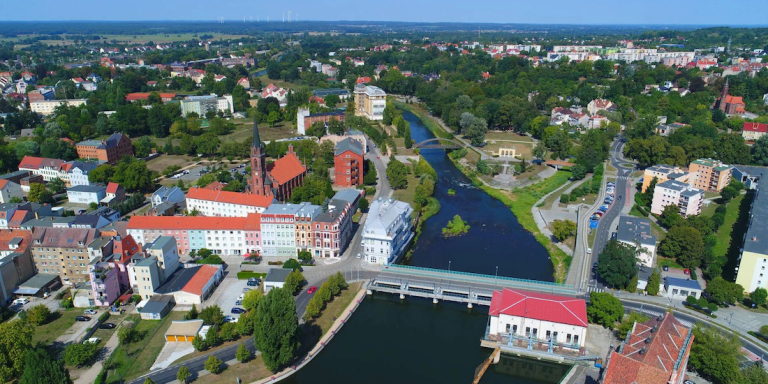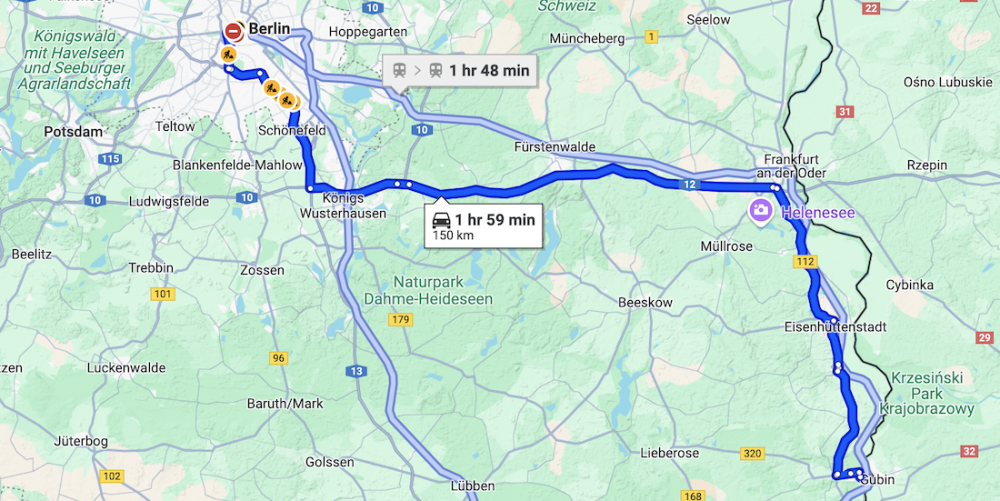
Far-right AfD exploits housing shortages and demographic challenges as migrant accommodation sparks community tensions
New York, N.Y. – Eastern Germany’s housing crisis has become a political flashpoint as the far-right Alternative für Deutschland (AfD) party capitalizes on growing tensions over migrant accommodation and demographic decline across the region.
The movement draws strength from the region’s specific Cold War history, with polls showing the AfD has a strong lead in eastern German states where housing shortages intersect with immigration concerns.
Housing Shortage Creates Perfect Storm
The housing crisis gripping Germany has reached critical levels, with German housing construction stagnating in 2023 as the wider property market suffers its worst crisis in a generation. This shortage has become particularly acute in eastern regions, where urban areas like Leipzig, Dresden, and Jena are thriving with rising property prices, while rural districts struggle with depopulation and economic stagnation.
Recent incidents have heightened tensions between local communities and authorities. Senior citizens have been moved out of housing complexes to make way for refugees, generating hundreds of hate mails and thousands of calls to local officials. These relocations have provided ammunition for far-right groups seeking to exploit community frustrations.

Close Up on Guben in Eastern Germany, on the Polish Border
Guben is a town on the Lusatian Neisse river in the state of Brandenburg, eastern Germany. Located in the Spree-Neiße district, Guben has a population of only about 20,000. It is a divided city on the border between Germany and Poland, having been separated into Guben and Gubin in 1945.
AfD Gains Ground Through Housing Politics
The housing crisis has become central to the AfD’s political strategy in eastern Germany. The anti-immigrant party made significant gains in recent state elections, with the outcome showing how the wounds of reunification are pitching eastern regions toward the far right. The party’s messaging focuses on prioritizing German citizens over asylum seekers in housing allocation.
Migrants like Syrian doctor Humam Razok, who fled Damascus nine years ago, now feel increasing anxiety as the political climate shifts. The AfD’s rise has created an atmosphere of uncertainty for established migrant communities who previously found refuge in Germany.
Construction Crisis Deepens Regional Divides
Germany’s construction sector faces unprecedented challenges. Building capacity is decreasing, with 2024 potentially marking a historic low of 177,000 new apartments despite the federal government’s goal of 400,000 annually. Only 106,700 housing units were approved between January and June 2024—a 21.1% decrease from 2023.
This construction shortfall has disproportionately affected eastern Germany, where demographic changes and economic disparities create additional complexity. Urban centers experience gentrification pressures while rural areas face population decline, creating a two-tiered housing market that politicians struggle to address.
Security Concerns Rise With Political Tensions
The politicization of housing has led to increased security incidents. According to government information, attacks on asylum-seeker accommodation increased during 2024, with overall attacks containing extreme far-right elements also rising. These incidents reflect the broader radicalization occurring in communities where housing competition is most acute.
Local authorities report struggling to balance community concerns with legal obligations to provide asylum seeker accommodation. The situation has created a cycle where housing shortages fuel political extremism, which in turn makes housing solutions more difficult to implement.
Economic Implications Compound Crisis
The housing shortage extends beyond immediate accommodation needs to broader economic implications. Rental pressures are mounting as median asking prices rose across major German cities, with developments such as Airbnb and refugee arrivals adding to the squeeze. This economic pressure particularly affects working-class communities in eastern Germany who feel squeezed by market forces and immigration policies.
Economic migration patterns show more skilled workers emigrate from Germany than immigrate, with Germany having the third highest emigration rate among OECD countries. This brain drain compounds eastern Germany’s demographic challenges while increasing pressure on remaining housing stock.
Political Realignment Threatens Democratic Norms
The housing crisis has contributed to a broader political realignment that threatens Germany’s democratic institutions. Germany’s opposition conservatives recently won parliamentary approval for migration restrictions with help from AfD votes, breaking a taboo on cooperation with the far-right. This development signals a potential normalization of far-right positions within mainstream politics.
The firewall against far-right cooperation has weakened as traditional parties struggle to address constituent concerns about housing and immigration without adopting AfD rhetoric. This political dynamic creates additional barriers to comprehensive housing policy solutions.
Future Outlook Remains Uncertain
Eastern Germany’s housing crisis represents a complex intersection of demographic change, economic inequality, and political extremism. Without comprehensive policy interventions addressing both housing supply and integration challenges, the region risks further political radicalization.
The situation requires coordinated responses from federal, state, and local governments to address both immediate housing needs and longer-term demographic sustainability. However, the current political climate makes such cooperation increasingly difficult as parties compete for voter support through populist messaging.
The housing crisis in eastern Germany serves as a warning about how basic needs like shelter can become weapons in political warfare, threatening both social cohesion and democratic governance.
Eastern Germany Faces Housing Crunch Amid Political Upheaval (June 24, 2025)